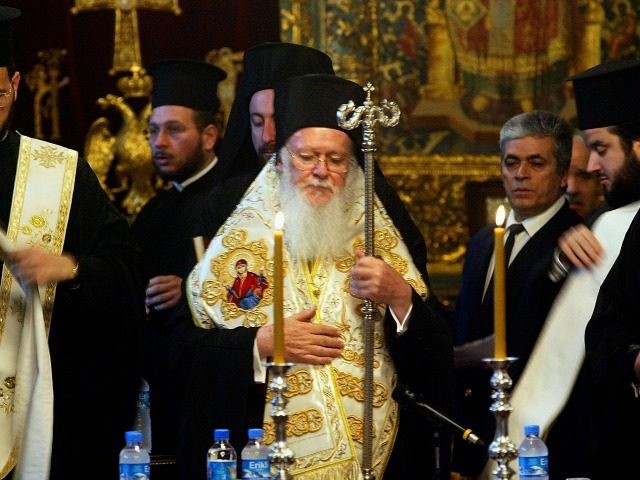In a bid to disrupt the historic pan-Orthodox Council that began in Crete Sunday, the Russian Orthodox Church noisily announced its withdrawal from the meeting, taking with it the Antiochian, Bulgarian and Georgian Churches—who together represent more than half of the world’s Orthodox Christians.
Despite their absence, the world summit of Orthodox Christian Churches began Sunday with a Mass in Heraklion, kicking off the first such gathering since the 8th century.
The “Holy and Great Council” has been hailed as the first meeting of all Orthodox leaders since the year 787, when the last of the seven councils recognized by both Orthodox and Catholics was held.
The withdrawal of the Russians underscores a deep rift among the Orthodox Churches regarding primacy, with Russia asserting its preeminence and the Ecumenical Patriarch of Constantinople insisting on its status as the “first among equals” among the Orthodox Churches.
It also reveals the acute tensions between modernizers and ultra-conservatives in Orthodoxy. Some Churches, for instance, were sharply critical of Russian Patriarch Kirill’s meeting with Pope Francis in February, while others fear exaggerated concessions in Orthodoxy’s ecumenical drive for unity with other churches.
The Russian Orthodox Church, which claims some 150 million members worldwide, called for the postponement of the global summit. In an effort to deflate the aspirations of the meeting, Spokesman Metropolitan Hilarion said that with several churches backing out, “it is no longer a Pan-Orthodox Council.”
Despite its numbers, the Russian Orthodox Church suffered an inestimable decline in prestige and credibility during the 20th century, as its sweeping concessions to the Soviet Communist Party made it a virtual patsy of the regime. The Communist leadership employed the Russian patriarchate as a propaganda agent, while futilely trying to create the impression of religion freedom in the Soviet Union.
Despite the withdrawal of several churches, over 1,000 Orthodox scholars urged the primates to continue forward with the summit in an open letter.
“We believe that there are no insurmountable difficulties to beginning the Council in June, despite the significant questions that have been raised regarding the drafts of the conciliar documents and conciliar proceedings,” said the letter.
“Nobody can expect the Council to settle all important questions and to heal all jurisdictional disputes in 10 days,” the letter said. “But we hope that this Council will be a beginning of the healing process and that it will usher in a new era of global conciliarity and unity.”
The letter also noted that “the eyes of the whole world are upon the Orthodox Church,” and the drafters urged “all of our leaders to hear the Spirit’s call to conciliar unity.”
The assembly is scheduled to continue until June 27. Discussion points on the agenda include the mission of the Orthodox church in the 21st century, autonomy, marriage, the importance of fasting, and relations with the rest of the world.
Follow Thomas D. Williams on Twitter Follow @tdwilliamsrome

COMMENTS
Please let us know if you're having issues with commenting.